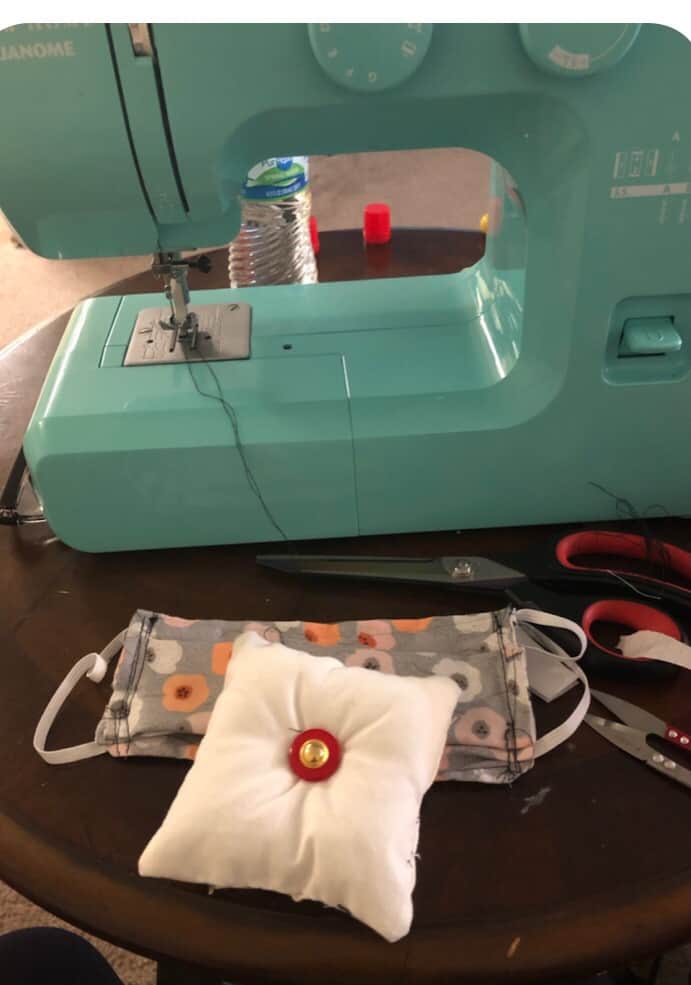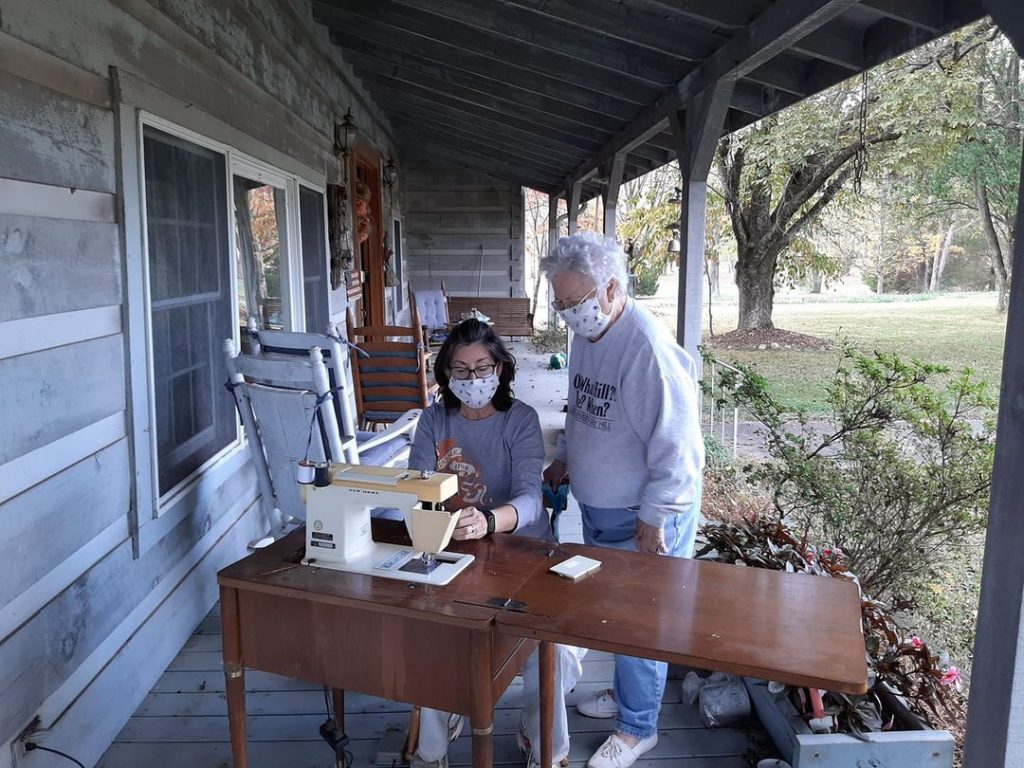In 1949, a young Yugoslavian man left war-torn Europe with all that he had in the search of a better life. Rather than packing multiple suitcases like we would today, however, he had to build his own out of nails and wood.
A Nazi prison camp survivor, he had spent the past five years of his life in a displaced persons camp in Europe, one of over one million to do so after the war. He had worked for the U.S. army for a time, and when offered the chance to emigrate by the Serbian Orthodox Church, who sponsored displaced persons (DPs) after the horrors of World War II, he jumped at the opportunity.
Upon arriving in the U.S., he had nothing but his plywood suitcase. Over time, he built a life for himself here, marrying a fellow immigrant from Serbia. Both families had saved every penny they had in order to be able to come to America, the land of opportunity, in the aftermath of the wars so that they could build a life for their future children, and they did.
Today, their children and grandchildren are thriving American citizens, having become engineers, teachers, IT professionals and doctors. Several generations have proudly served the U.S. military. One of them, in fact, has even begun giving back to the refugee community that is so similar to that of her father’s by volunteering with us at World Relief Memphis.
Last fall, Melissa got involved with our Resiliency Program, which helps refugee and immigrant women learn to sew so that they can empower themselves and eventually help support their families.

Prior to COVID-19, Melissa had been unable to volunteer because of the distance. In fact, she lives on a farm in Franklin County, TN, about five hours from Memphis. Yet with the pandemic, she was presented with the opportunity to come alongside the refugee community remotely to help them learn the hard and soft skills necessary to fully integrate into life in the U.S.
“One of the main things is teaching them the skills for working outside of a home,” Melissa explains. “Some of them have jobs, some of them don’t, so understanding how to call somebody, how to be on time . . . it’s teaching them to be responsible for their jobs.”
For a couple hours each week, Melissa sits down at her kitchen table and connects via a WhatsApp video call to go through the different projects with each woman. They follow a series of videos that teaches them how to make various items such as masks, scrunchies, bow ties, etc.
“They are so brave to do this,” said Melissa, 62. “Imagine, they are watching a video that is not in their native language, and then I can’t help them hands on.”
One time, a student’s bobbin, which feeds the thread through the machine to stitch, wasn’t working. When she called Melissa with the problem, Melissa patiently walked her through it via WhatsApp video, trying to help as much as possible from nearly 300 miles away.
Learning to sew is always a challenge, yet doing so virtually, through videos with no teacher there to guide you, is even more challenging. For Melissa, however, it was something that was passed down through the family, from generation to generation and from country to country. Now, she’s taking what her grandmother, who was from Serbia, taught her and passing it on to other immigrants and her own daughters.

“My maternal immigrant great-grandfather was a tailor, and [my grandmother] was a true fashionista,” said Melissa, who sewed her own clothes during high school. “She would say, ‘Cut here, cut here!’ I would sew dresses for her, after she had suffered a crippling stroke, and those came out really beautiful. She didn’t even use a pattern, and, you know, that’s how I learned to sew.”
With the rising prices of fabric and sewing materials, Melissa sews fewer clothes these days, focusing mainly on quilting, home décor and tailoring ready-made clothing. However, she still maintains the family tradition by teaching other immigrant woman to sew.
“It’s really been wonderful for me to make friends with these women,” she said. “We talk about other things too [such as] their jobs or what they’re cooking for dinner, their culture.”
In doing so, Melissa is building relationships that will last a lifetime and are mutually transformative. For her, she’s learning about other cultures and carrying out what the Bible has called us to do by loving and caring for her neighbor.
“We’re called on by Christ to care for all people. There’s no nationality for Christ’s teaching,” said Melissa, who is a member of a local church in her hometown. “He said to love others as you love yourself . . . even in the Old Testament, the story of Ruth reminds us that there is no difference with strangers in a strange land because we are all God’s children.”
For one woman that she teaches, this devoted care has made all the difference. Yordanos, who just started the Resiliency Program four weeks ago, already knows she can turn to Melissa in any circumstance.
“She’s very generous and helpful, and she cares about her work,” Yordanos’ daughter said as she translated. “Even if she finishes the program, she’s still going to have contact with Melissa, and she knows she’ll easily help her and try to do things in a different way.”
A former student who recently completed the program echoed Yordanos’ sentiments, saying that Melissa was a good teacher who encouraged her and helped her with her English.
“She was a big help for me. Whenever I had done my projects, I showed her and she said it’s great,” she said. “I could turn to her for any difficulties.”
In the future, this student would like to look for a job as a seamstress. Melissa, on the other hand, would like to continue volunteering with World Relief Memphis, even coming in person if needed from time to time.
“Everyone has been so open and friendly to me,” she said. “I like to speak to people who are not native English speakers, and I like to learn about their cultures because I have an interesting culture.” As a former teacher who has experience listening and understanding people who have a strong accent or beginning English skills, Melissa is able to help students become confident in expressing themselves in English.
Through her time volunteering at World Relief Memphis, Melissa has not only helped empower the lives of the women she helps, but she’s also expanded her own learning about other cultures.
“Melissa has been pivotal to the program, and she’s engaged with clients beyond just sewing – she’s been their friend, a person to talk about their culture with, someone to share successes and set-backs with,” said Rachel Hatfield, who leads our Resiliency Program. “She is one of the most willing people I have ever met – I think she’s demonstrated that skills can be helpful, a language to communicate can be helpful – but, really what it all boils down to is a willingness to help, and learn, and grow alongside of clients.”
When her father arrived with a plywood suitcase over 70 years ago, he came with the hope of creating a new life for himself and his future children. He succeeded, and now his daughter is giving back to other immigrants and refugees through the family tradition of sewing.
With the help of volunteers such as Melissa, our work at World Relief Memphis goes far beyond simply welcoming someone when they first arrive. It creates mutually transformative relationships, and it empowers these men and women so that they might succeed in their new life in the U.S., just as Melissa’s family did all those years ago.
We are so incredibly thankful for our volunteers, and if you want to make an impact like Melissa did, fill out a volunteer application today. We are always looking for volunteers, regardless of whether or not you can sew. All are welcome here.
Bailey Clark serves as the Communications Coordinator for World Relief Memphis. With a background in journalism and advertising, she is passionate about storytelling and its power to make a difference.
